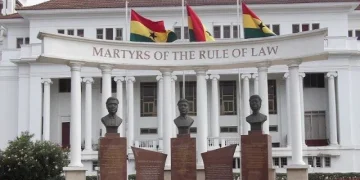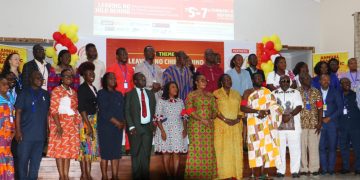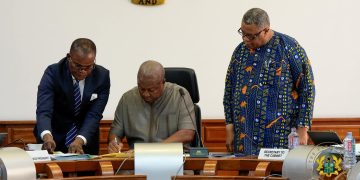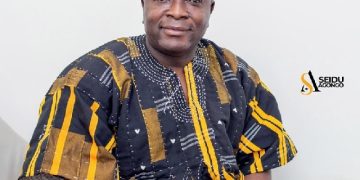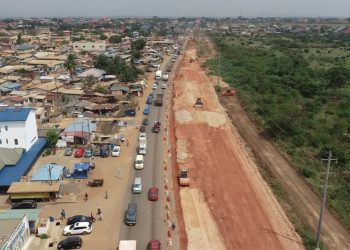The Forum for Development and Accountable Governance (FDAG) has strongly refuted allegations made by Dr. Gideon Boako, Member of Parliament for Tano North, regarding the appointment of Dr. Johnson Asiama as Governor of the Bank of Ghana (BoG).
In a statement released on Thursday, February 6, 2025, FDAG criticized Dr. Boako’s remarks, describing them as politically charged and misleading. The civil society organization emphasized the importance of upholding due process and avoiding rhetoric that undermines institutional credibility.
Addressing claims that Dr. Asiama’s appointment was unconstitutional due to a lack of consultation with the Council of State, FDAG cited Article 70 of the 1992 Constitution, which grants the President the authority to appoint the BoG Governor. The organization further referenced the Supreme Court ruling in Agyei Twum v. Attorney General & Akwetey (2005), which clarified that consultation with the Council of State is advisory and not binding on the President.
“Precedent shows that past administrations have made similar appointments before formal consultation was completed. If any party believes there has been a constitutional breach, the appropriate action is to seek legal redress, not to engage in public distortions of the law,” the statement read.
FDAG also rejected Dr. Boako’s characterization of Dr. Asiama as a “potential criminal convict,” calling the statement irresponsible and legally unfounded. The organization stressed that all charges previously brought against Dr. Asiama had been withdrawn by the Attorney General due to lack of evidence.
“In Ghana’s legal system, the presumption of innocence is paramount. No individual should be subjected to political attacks without judicial basis,” FDAG stated. It urged political actors to avoid reputational damage to public servants based on partisan considerations rather than established legal findings.
Dr. Boako’s claim that Dr. Asiama’s appointment could damage Ghana’s credibility with international financial institutions, including the International Monetary Fund (IMF), was also dismissed by FDAG. The organization argued that such institutions operate based on due process and do not assess officials based on political narratives.
“There is no evidence that the IMF or any other international body views this appointment as problematic. Instead, what weakens Ghana’s credibility is the continued politicization of lawful appointments,” FDAG asserted.
Beyond the political controversy, FDAG highlighted Dr. Asiama’s contributions to Ghana’s financial sector. It credited him for his leadership in developing the Deposit Protection Act, 2016 (Act 931), which established the Ghana Deposit Insurance Corporation (GDIC) to safeguard depositors in cases of bank failures.
As Deputy Governor of the BoG, Dr. Asiama also played a pivotal role in initiating Ghana’s Corporate Governance Directive, which was later issued in 2018 to strengthen governance and risk management in the banking sector.
“These achievements underscore Dr. Asiama’s expertise and commitment to financial stability. His track record proves his capability to lead the central bank effectively,” FDAG noted.
FDAG concluded by urging political actors to engage in fact-based, legally sound discussions rather than using partisan rhetoric to discredit public officials.
“Public accountability should be pursued through legal and institutional mechanisms, not through media trials or speculative accusations. Ghana’s democracy is stronger when governance institutions are respected and due process is upheld,” the statement emphasized.
FDAG reiterated its commitment to promoting democratic accountability and called on all stakeholders to prioritize institutional integrity over political interests.
Source: www.kumasimail.com




